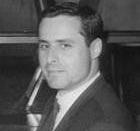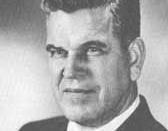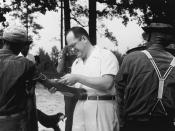Imagine this: the United States of America government conducts an experiment that involves some six hundred low-income, largely uneducated African-American males, about four hundred of whom infected with syphilis, in an economically deprived rural county in the South; even though a proven cure becomes available during the experiment, the study continues on for nearly half a century, and would likely have continued on much longer if it were not for the moral conscience of a doctor, with participants being denied the cure--and all of this happening hard on the heels of the Nuremberg war crime trials. It is difficult to imagine such an inhumane human experiment lasting for so long and for so late into the twentieth century in a nation regarded worldwide as the beacon of social democracy, equality and justice for all, yet this is precisely what happened in the tiny sharecropper community of Macon County, Alabama, between 1932 and 1972, as chronicled in "Bad Blood: the Tuskegee Syphilis Experiment" by James H.
Jones.
The book gives a terrific account of the historical and institutional context for the experiment, the experiment itself, and its aftermath, and in the process raises moral questions just as relevant today as they were then. In reading the book, I was particularly intrigued by the role that Eunice Rivers played in the study. Over its forty-year history, she was the only staff person who remained constant. Herself an African-American nurse from Macon County, she served as the glue between the Public Health Service (PHS) researchers and the rural African-American men, and in that capacity was instrumental to the continuation of the study. She not only attempted to keep the men in the study, but many times she also prevented them from receiving medical care for syphilis. She never advocated treating the men,


